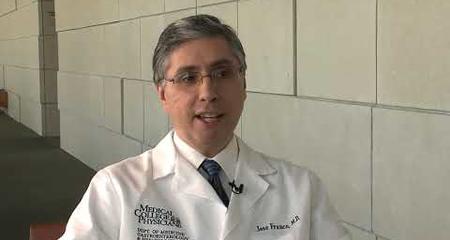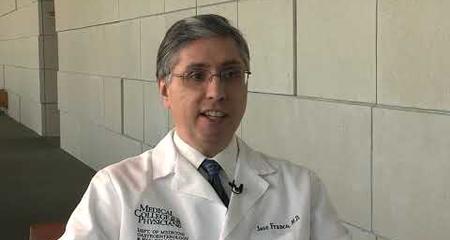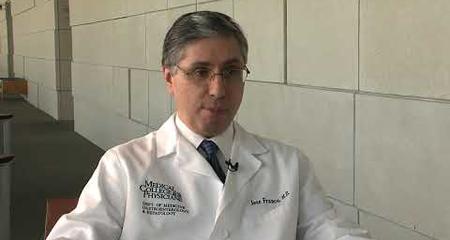Froedtert & the Medical College of Wisconsin use the most advanced procedures and technology to diagnose the cause of symptoms that occur with digestive tract diseases.
The GI tract, about 28 feet long, consists of the upper and lower GI sections.
- The upper GI tract consists of the mouth, pharynx, esophagus and stomach. The esophagus extends through the chest to the stomach, which, in turn, leads to the small intestine.
- The lower GI tract comprises the small and large intestines (bowels) and anus.
- Related organs include the liver, which secretes bile into the small intestine (using the gallbladder as a reservoir), and the pancreas, which secretes fluid and enzymes into the small intestine. Both of these organs aid in digestion.
The following techniques may be used to diagnose disorders of the digestive tract:
- Imaging — Uses tools such as magnetic resonance imaging (MRI), compute tomography (CT) and X-rays.
- Endoscopy — Examines the inside of the body using a lighted, flexible instrument called an endoscope. This includes colonoscopy — a screening specific to the colon and rectum.
- GI Motility Testing — Diagnoses motility (movement) disorders of the esophagus using tests performed in the GI Manometry Lab.
Screening Exams
Screening exams may be done to check for GI diseases such as:
- Gastroesophageal reflux disease (GERD), a backflow of acid from the stomach into the swallowing tube or esophagus; GERD is also called acid reflux or heartburn
- Swallowing disorders
- Inflammatory bowel disease (IBD), an inflammatory condition of the large intestine and, in some cases, the small intestine
The Gastroenterology Program also conducts screening exams for cancer of the esophagus, colon and rectum.
Biopsies of the Gastrointestinal Tract
A biopsy is a procedure in which small pieces of tissue are removed for testing in a laboratory to see if abnormalities are present. A tissue sample may be obtained with a needle using endoscopy and ultrasound or CT guidance. A cytologic brushing is a technique to scrape and gather cells to provide a biopsy sample.
Recognized as High Performing by U.S. News & World Report
Froedtert Hospital is recognized by U.S. News & World Report as high performing in three adult specialties and 16 procedures and conditions, including gastroenterology and GI surgery.Virtual Visits Are Available
Safe and convenient virtual visits by video let you get the care you need via a mobile device, tablet or computer wherever you are. We'll assess your condition and develop a treatment plan right away. To schedule a virtual visit, call 414-777-7700.





